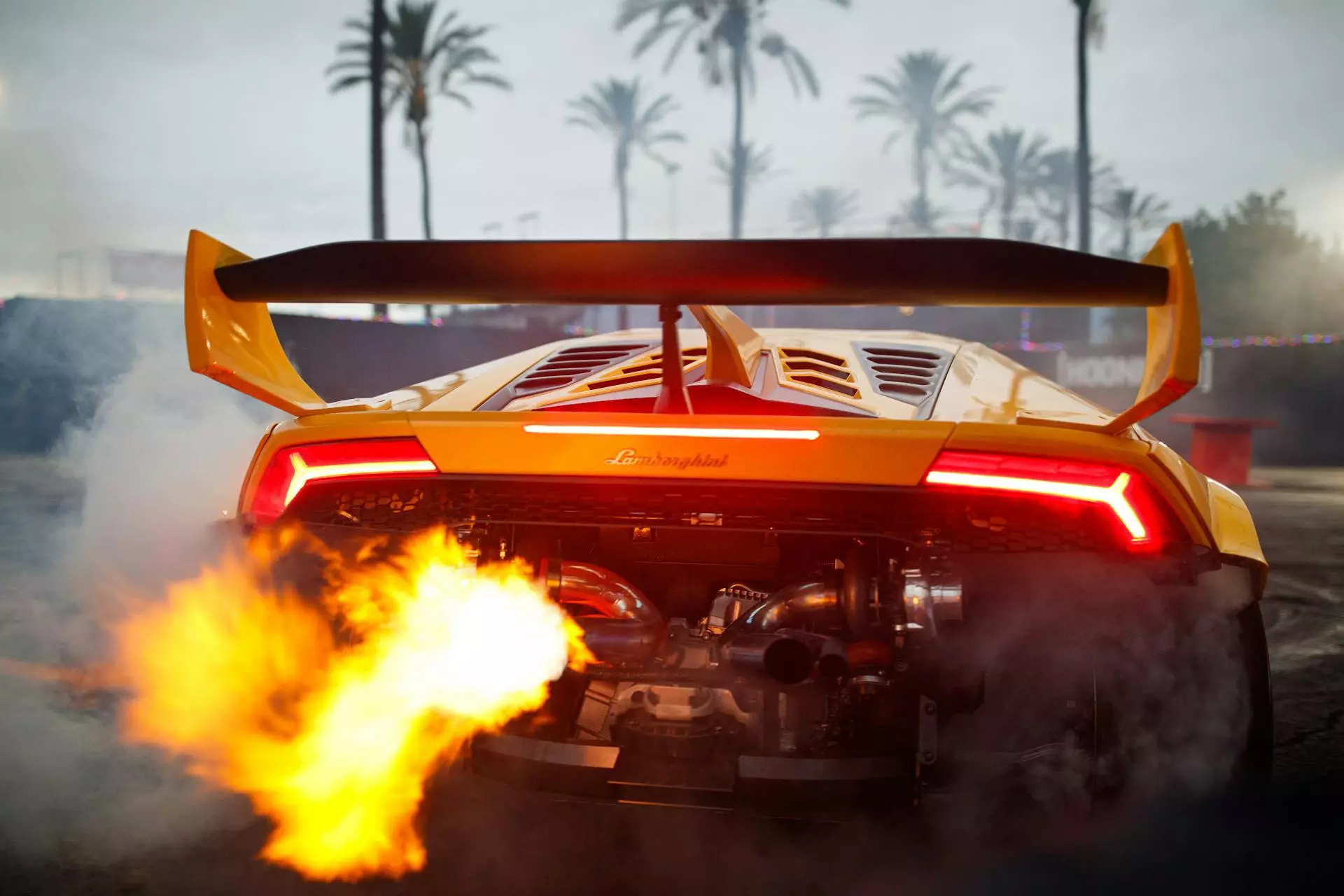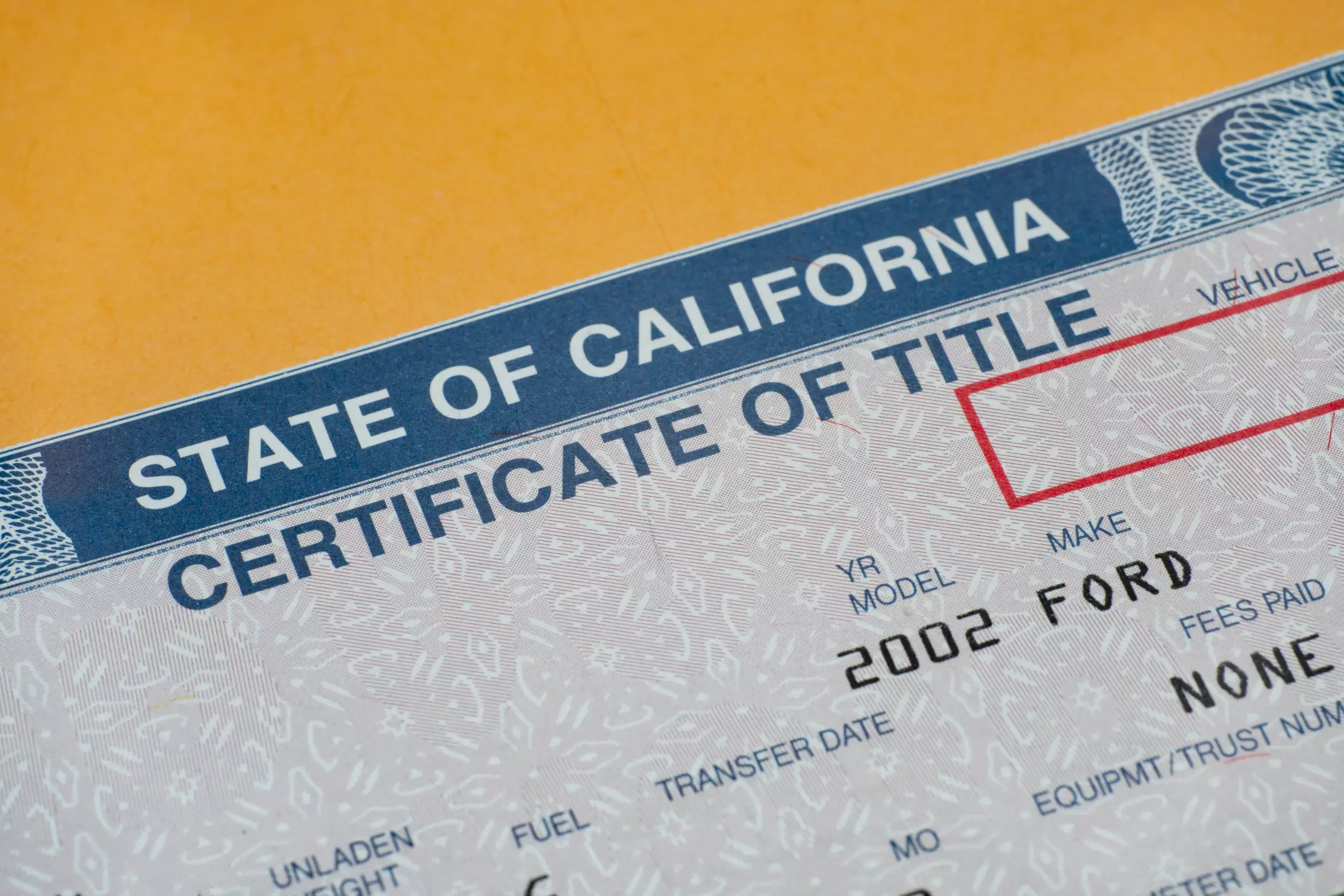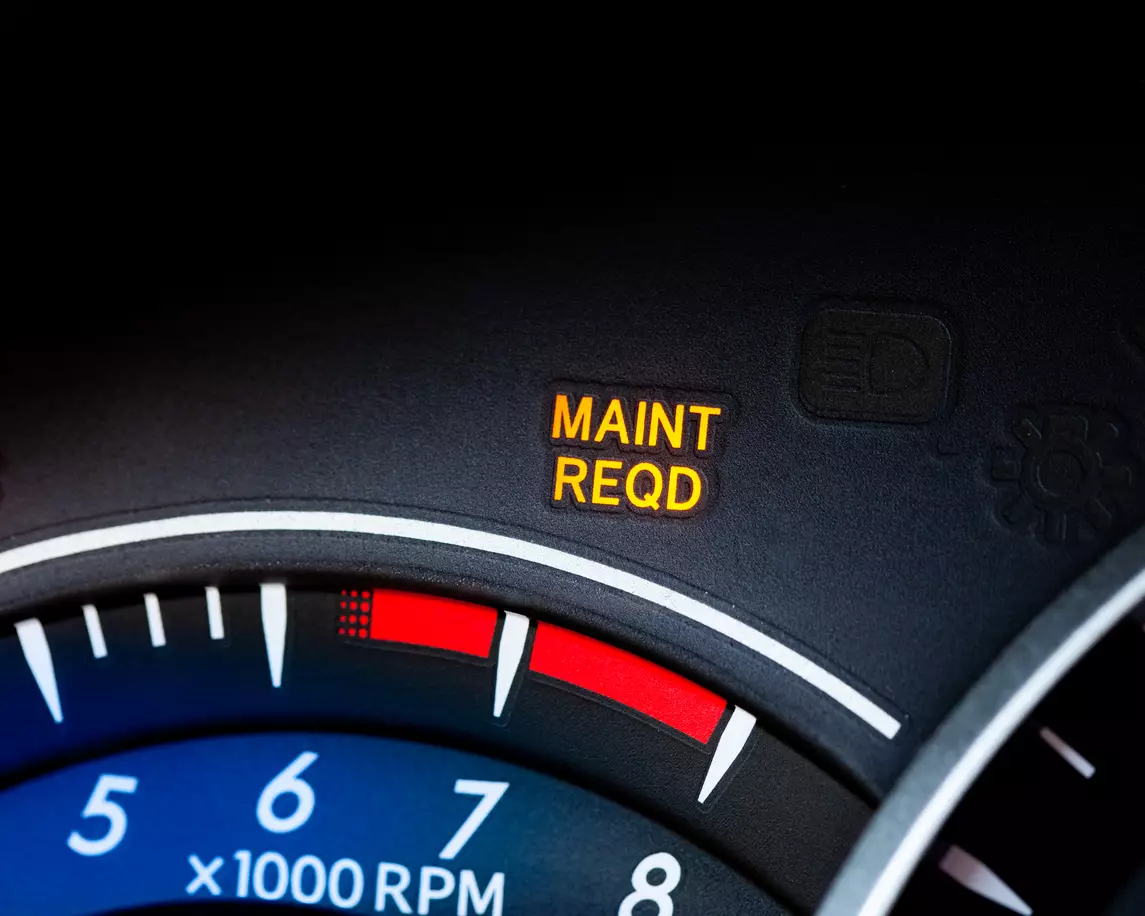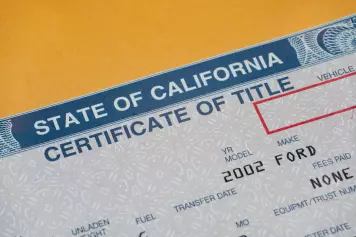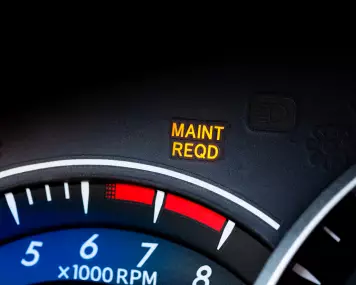The sound of a powerful engine sparks emotions and commands attention, especially among car enthusiasts. Whether it is a thunderous growl of a V8 muscle car or the high-pitched scream of a V12 engine, engine noise may be more than just a byproduct of combustion. For automotive lovers, it is a defining part of the driving experience and a symbol of mechanical artistry.
In this article, we will explore the world of loud cars through what makes a car loud, how sound is measured, and what the legal limits are in various parts of the world. In addition, this article reviews some of the loudest production vehicles ever built, as well as modified machines that push the boundaries of noise far beyond what is typically allowed on public roads.
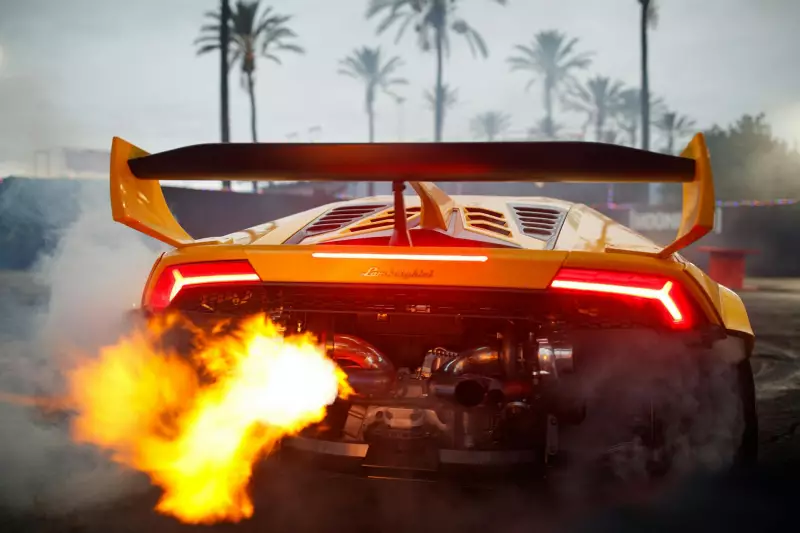
Loudest Production Cars Ever Made
Some of the world's most iconic performance cars also double as the loudest cars in the world. Hence, not only are they known for their speed and designs, but they are also famous for the huge sounds they produce. Through careful and deliberate engineering, these vehicles are constructed to deliver roars resonating with automotive enthusiasts and bystanders alike. While exhaust modifications may make almost any car louder, the following street-legal production cars with loud engines are famous for their stock exhaust noise, with some even breaching 100 decibels.
Dodge Challenger SRT Demon
The Dodge Challenger SRT Demon is one of the most aggressive-sounding American muscle cars around. Powered by a 6.2-liter supercharged V8, it delivers an intense, thunderous growl that reaches well over 100 decibels in stock form.
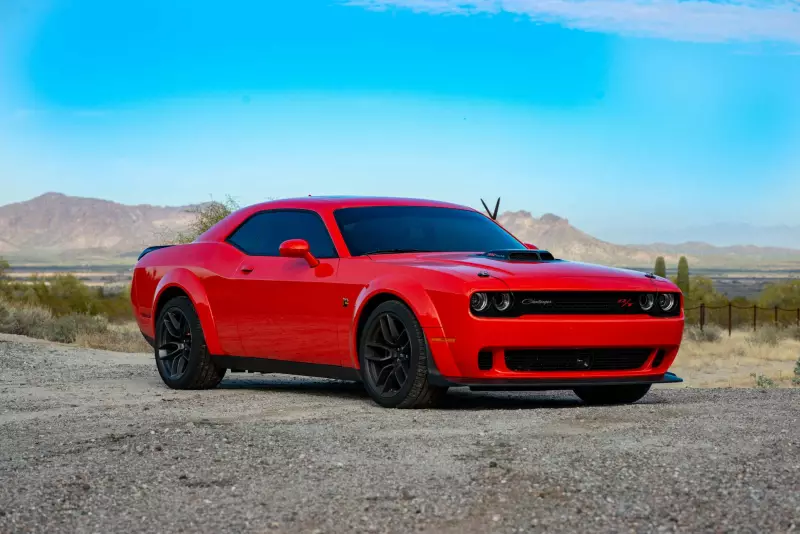
Lamborghini Aventador SVJ
Fitted with a naturally aspirated 6.5-liter V12, the Aventador SVJ produces a spine-tingling, high-pitched scream. It is revered for its raw, mechanical howl, producing around 95 to 100 decibels, and delivering an experience that mirrors its exotic looks and razor-sharp handling.
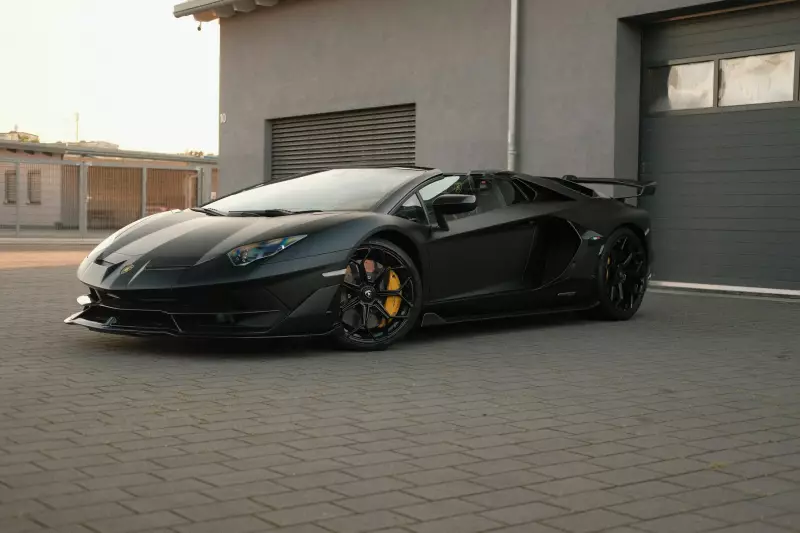
Ferrari 812 Competizione
The Ferrari 812 Competizione features a naturally aspirated 6.5-liter V12, producing what many call a “V12 symphony.” With an exhaust note revving beyond 9,000 rpm, this Ferrari has earned praise for one of the most exhilarating stock sounds in modern automotive history, often measured around 92–96 decibels.
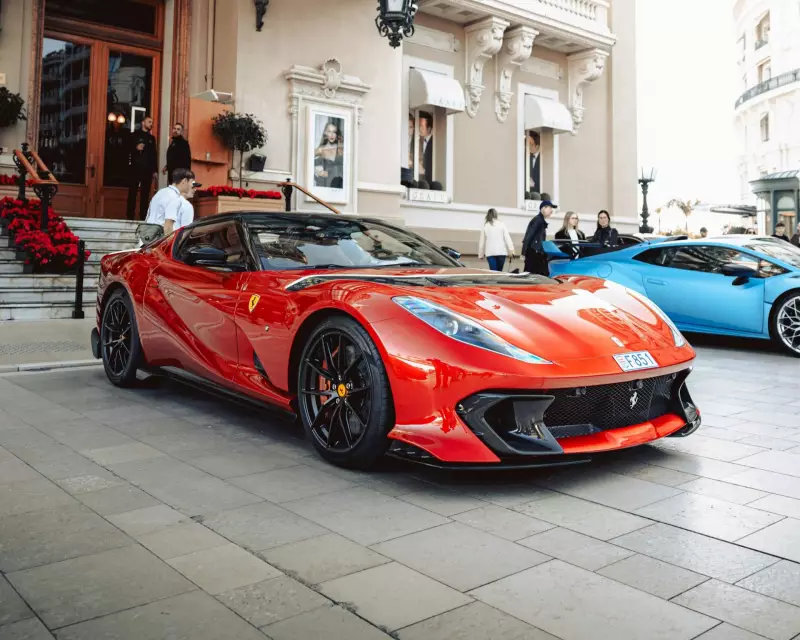
Porsche 911 GT3 RS (992)
The 992-generation 911 GT3 RS houses a high-revving flat-six engine designed for track performance. Its naturally aspirated layout and lightweight exhaust system produce a piercing scream that can reach 100 decibels, particularly under load and at high RPMs.
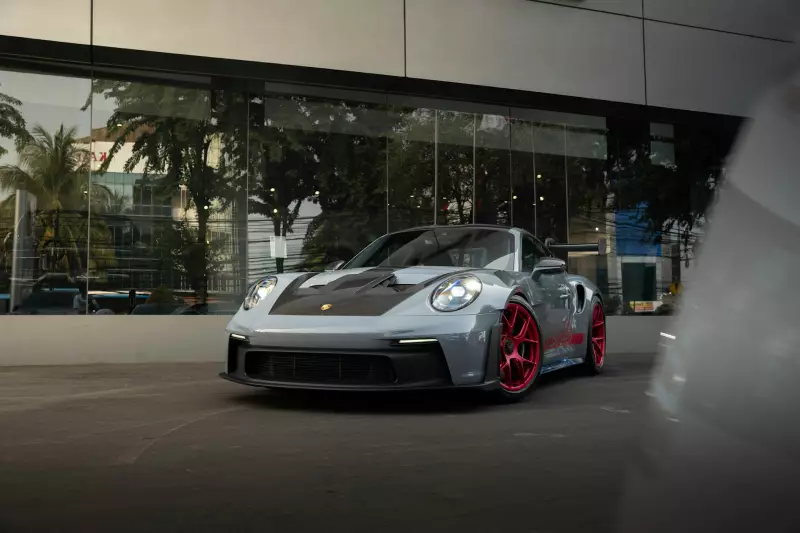
Lexus LFA
Often compared to a Formula 1 car, the Lexus LFA's 4.8-liter V10 is tuned for both performance and sound. Developed in collaboration with Yamaha’s music division, the LFA emits a hauntingly beautiful, high-revving note that peaks near 118 decibels, placing it among the loudest cars in the world.
Aston Martin Valkyrie
The Aston Martin Valkyrie combines F1-derived engineering with a naturally aspirated 6.5-liter V12 developed by Cosworth. Its unfiltered, shrieking tone approaches 110–120 decibels, making it one of the most extreme road-legal cars ever released, in both performance and sound.

The Loudest Modified Cars in the World
While road-worthy stock supercars growl louder than standard cars, the sound from modified or purpose-built vehicles pushes the boundaries of sound and performance even further. Modified cars are often the stars of car shows, social media, and tuner events, and are not typically street legal due to their extreme decibel levels. With custom exhaust systems, straight pipes, decat conversions, and open headers, they produce decibel readings far beyond what any factory car is allowed to deliver.
Jaguar F-Type SVR Modified (by Kline Innovation)
This modified Jaguar F-Type SVR became widely known after it was fitted with a bespoke titanium exhaust system from Kline Innovation. Consequently, it produces a savage, crackling exhaust note measured at over 125 decibels, well beyond legal street limits.
Lamborghini Huracán (Straight Pipe Mods)
The Lamborghini Huracán is a popular choice in the tuning community, especially for those who want to amplify its naturally aspirated V10. When fitted with straight pipes and decat exhaust systems, it can reach sound levels exceeding 130 decibels, producing a high-pitched scream rivalling those produced by track-only race cars.
Nissan GT-R R35 (Liberty Walk builds, etc.)
The Nissan GT-R R35 is also popular among car tuners. In builds enhanced by Liberty Walk or other high-performance tuning houses, the GT-R often features widebody kits and custom exhausts. These setups push well past 120 decibels, creating a deep, aggressive note that is instantly recognizable in tuner meets and dyno events.
Dodge Charger Hellcat (Open Header Builds)
While already loud from the factory, the Dodge Charger Hellcat becomes almost deafening when fitted with open headers and straight-pipe exhausts. These setups eliminate most sound dampening, allowing the raw V8 fury to reach 130 decibels or more. These builds are common in American muscle car tuning culture, particularly in drag and burnout competitions.
What Makes a Car Loud?
Certain mechanical and acoustic factors determine how loud a car will sound as well as how fast it goes. Specifically, the sound a car produces, particularly via its exhaust system, depends on how the engine is designed, how gases are expelled, and whether the car's design includes noise-reducing components. Although some cars are engineered to sound bold straight from the factory, others are modified to increase their volume well beyond legal limits. The following factors are major contributors to the loud growls heard from the supercars around.
Engine Type and Configuration
At the heart of any car's sound profile is the engine. Larger displacement engines such as V8s, V10s, and V12s usually produce more power and burn more fuel-air mixture, creating a deeper and louder exhaust note. With more cylinders firing per revolution, larger displacement engines deliver increased frequency and volume of sound. The engine layout, such as flat-six or inline-four, also affects tone and resonance, with larger, high-revving engines typically producing more aggressive exhaust notes.
Exhaust System Design
Another system in a car that plays a significant role in the car's sound is the exhaust system. Usually, straight-pipe systems remove mufflers and catalytic converters, allowing exhaust gases to escape more freely. This results in a rawer and louder sound in most cases. In addition, aftermarket muffler deletes, decat pipes, and resonator removals are common modifications among enthusiasts looking to increase car decibel levels. Usually, cars with modified exhaust systems bypass components designed to muffle or dampen sound, ensuring that higher levels of decibels are produced by the vehicles.
Measuring Decibels (dB) and Legal Limits
In line with sound measurement, car sounds are also measured in decibels, which is a logarithmic unit quantifying the intensity of sound waves. In order to maintain public noise standards, most countries regulate maximum decibel output for road-going vehicles. In most countries, cars producing more than 100 dB will be categorized as exceeding acceptable sound limits.
Are Loud Cars Legal? Noise Regulations Around the World
Although car enthusiasts may find loud noises from the exhausts exciting, vehicle noise remains strictly regulated in many parts of the world in order to protect public health and reduce environmental disruption. Typically, governments impose decibel (dB or dB(A)) limits to determine what may be categorized as "street legal." Note that the dB(A) applies a standardized "A-weighting" filter that adjusts measurements to reflect the frequency range humans are most sensitive to (roughly 500 Hz to 4,000 Hz). These limits vary by region, and drivers must understand the regulations to avoid penalties, especially when modifying their vehicles or importing performance cars.
U.S. Street Legal Limits by State
The United States does not use a single nationwide exhaust noise limit. Although the Noise Control Act of 1972 and EPA guidelines recommend that passenger vehicles not exceed roughly 70–75 dB at highway speeds, enforcement is left to individual states. Most states in the nation enforce noise limits that generally fall between 95 and 100 dB, measured at about 15 meters from the tailpipe. California, for instance, sets a maximum legal limit of 95 dB(A) for cars, with periodic testing and enforcement. Other states may rely on more subjective “plainly audible” rules or local ordinances, which may result in fines even if the car technically meets decibel thresholds. Hence, car owners are advised to always check their state’s Department of Motor Vehicles (DMV) or highway code to confirm specific rules.
EU and Global Noise Rules
The European Union (EU) enforces some of the strictest vehicle noise regulations. Since 2022, new passenger vehicles have been set a 72 dB(A) noise limit during standardized testing, with a planned reduction to 68 dB(A) by 2026. These measurements are taken under controlled conditions and simulate normal driving. Other countries, such as Japan, Australia, and Singapore, often align with EU standards or adopt United Nations (UNECE) regulations, particularly for imported cars. Many Asian jurisdictions currently set decibel caps around 97–103 dB(A) for in-use vehicles, but may insist on a lower limit for new registrations.
Penalties for Breaking Noise Limits
Drivers who exceed legal noise thresholds risk a variety of penalties, such as fines, mandatory inspections, vehicle impoundment, or being ordered to restore the car to stock condition. Also, in many jurisdictions, cars that fail routine inspections due to excessive exhaust noise may not be registered or renewed. Modified vehicles, particularly when equipped with straight pipes, muffler deletes, or illegal aftermarket exhausts, are at significant risk of facing penalties for breaking car noise limits.
Car enthusiasts are often attracted to the bold designs, powerful engines, and the thrilling feeling that typically comes with driving loud cars. From the factory-tuned roar of a V12 supercar or the near-deafening growl of a modified muscle machine, these vehicles captivate audiences not just with their speed, but with their sound. Cars like the Jaguar F-Type SVR Modified, Lamborghini Huracan, and Nissan GT-R 35 that go over 120 decibels show how far sound can be pushed, but there are rules to follow. However, as thrilling as loud engines may be, drivers must remain aware of the legal boundaries that govern vehicle noise in their region. For enthusiasts, understanding both the thrill and the legal limits of automotive sound is key to enjoying a smooth driving experience without facing any regulatory sanctions.


